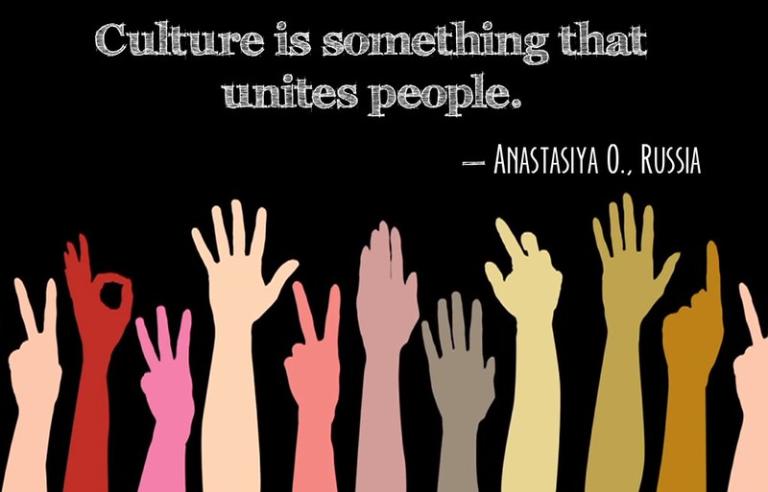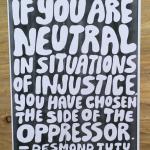How should we define “culture”? Ask 100 writers for a definition and you’ll get 140 answers. In this post, I highlight some of the most common attempts at defining culture. Then, I’ll suggest my own.
The goal here is to add clarity to our conversations so that we can understand the waters in which we swim. By that, I mean that Christians especially think of culture as something out there as if Christ’s followers were either opposed to culture or immune to it.
Many Christians claim that Christianity and “culture” are fundamentally in opposition. How many debates have we all heard where people pit the Bible against culture? The first two sections summarize broad ideas commonly espoused by mainstream anthropologists and Christian leaders.
How do anthropologists define “culture”?
Among mainstream anthropologists, culture is a set of shared values, norms, behaviors, and beliefs that are passed down from generation to generation within social groups (cf. Edward Tylor; Bronislaw Malinowski; Max Weber). Culture is a way of life or being in the world.
We see a culture in people’s clothing choices, the foods they eat, how people express themselves, and the way they interact with others. Cultural expressions also include
- music preferences
- how they celebrate special occasions
- religious beliefs
- language
- customs or traditions
- artistic and intellectual achievements
Culture is a multidimensional concept. At its broadest, culture is the total of a society’s beliefs, values, customs, behaviors, and artifacts (cf. Herbert Spencer).
Notice that culture is learned rather than inherited through biology.

A person’s culture entails the social and psychological processes that shape how he or she thinks and behaves (cf. Jean Piaget; Margaret Mead). This includes how people learn, acquire knowledge, make/maintain relationships, solve problems, and make decisions.
Hofstede’s definition is creative: “Culture is the collective programming of the mind which distinguishes the members of one category of people from another.”[1]
What about evangelical writers?
Here’s a sample of options suggested by evangelical authors.
“the way we make sense of the world and our place in it” and claims that it is “the result of human creativity and human community” (Andy Crouch)
“the shared beliefs, values, customs, behaviors, and artifacts that characterize a group or society” and says that it is “shaped by the gospel and should be used to show the gospel to the world” (Tim Keller)
“the habits, practices, and institutions that shape the way we live and think” and “the heart of human flourishing and our life together” (James K. A. Smith)
“the beliefs, values, and practices that shape the ways in which we live” and “the arena in which we are called to be salt and light to a lost and dying world” (Russell Moore)
“the sum of all the ways in which we express our humanity” and argues that it is “the product of our hearts and the expression of our worship” (David Platt)
Observations and a Suggestion
It’s difficult to disagree with any of these proposals. Some are extremely broad while others are accurate but (arguably) neglect important aspects of culture. For instance, there are at least three common ways that typical definitions of “culture” frequently fall short. Of course, I’m speaking in broad terms.
- Cognitive dimensions of culture are stressed at the expense of other aspects.
- Definitions minimally unpack the behavioral side of culture.
- Authors rarely mention or develop explicitly that culture is learned
Consider the following comment by Banks and Banks:
The essence of a culture is not its artifacts, tools, or other tangible cultural elements but how the members of the group interpret, use, and perceive them. It is the values, symbols, interpretations, and perspectives that distinguish one people from another in modernized societies; it is not material objects and other tangible aspects of human societies.[2]
I think they overspeak in claiming that culture is “not material objects and other tangible aspects of human societies.”
If I were to interpret them more generously, perhaps what they mean is that culture is not the material alone that makes culture but rather our creation and interaction with it. I think their point might simply be to underscore the dynamic nature of culture.
Because most works that explain “culture” emphasize the cognitive, readers might find it difficult to distinguish culture and worldview. So, I put forth the following suggestions. Please tell me what you think.
Culture is a web of learned norms and systems shared by social groups
A worldview is a person’s assumptions and values, organized in a narrative, that shape how one interprets and lives in the world.
Advantages of this definition
One advantage of this definition of “culture” is its simplicity. The phrase “norms and systems” includes nearly any sort of attitude, behavior, or cognitive feature a person can think of.
“Learned” not only reminds us that culture is not inherited biologically, but also that it can be intentionally modified.
“Shared by social groups” underscores the inherently collective nature of culture. No single person makes a culture.
Concerning worldview, my proposed definition highlights the cognitive sphere that people usually emphasize when speaking about culture. What I want to stress here is that worldview also includes affectual things like values and that worldview necessarily manifests itself via lived experience.
What do you think? Is there something essential that needs to be added that is not redundant?
[1] G. Hofstede. “National Cultures and Corporate Cultures” in Communication Between Cultures (Edited by L. A. Samovar & R. E. Porter; Belmont, CA: Wadsworth, 1994).
[2] J. A. Banks and C. A. McGee, Multicultural Education (Needham Heights, MA: Allyn & Bacon, 1989).














